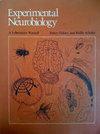体育锻炼对小鼠肾上腺素诱发的疼痛-抑郁二联症中脑源性神经营养因子表达的调节作用
IF 2.1
4区 医学
Q3 MEDICINE, RESEARCH & EXPERIMENTAL
引用次数: 0
摘要
伴有抑郁症状的疼痛是寻求医疗帮助的常见原因,许多慢性疼痛患者会合并抑郁症。脑源性神经营养因子(BDNF)是一种众所周知的神经营养素,在整个神经系统中均有表达,在神经元生长和神经可塑性中起着至关重要的作用。本研究旨在探讨运动对神经系统和利舍平(RSP)诱导的疼痛-抑郁二联症中 BDNF 表达的影响。小鼠皮下注射雷舍平(1 毫克/千克),每天一次,连续三天。给药后连续七天使用罗塔杆测试仪进行锻炼。使用 von Frey 灯丝评估疼痛反应,并通过强迫游泳和开阔地测试评估抑郁样行为。免疫荧光染色检查了背根神经节(DRG)、脊髓和海马中 BDNF 表达的变化。给予 RSP 会降低机械爪抽出阈值,增加强迫游泳试验中的静止时间,并减少开阔地试验中的运动。服用RSP后,DRG和脊髓背侧区的BDNF免疫活性增加,海马区的BDNF免疫活性降低。体育锻炼能明显减轻 RSP 引起的机械过敏和抑郁样行为。此外,运动不仅抑制了RSP诱导的DRG和脊髓背区BDNF表达的增加,还抑制了RSP诱导的海马区BDNF表达的减少。这些研究结果表明,通过调节 BDNF 的表达,重复运动可作为一种有效的非侵入性治疗方法,用于治疗疼痛和抑郁患者。本文章由计算机程序翻译,如有差异,请以英文原文为准。
Modulation of Brain-derived Neurotrophic Factor Expression by Physical Exercise in Reserpine-induced Pain-depression Dyad in Mice.
Pain accompanied by depressive symptoms is a common reason for seeking medical assistance, and many chronic pain patients experience comorbid depression. The brain-derived neurotrophic factor (BDNF) is a well-known neurotrophin expressed throughout the nervous system, playing a crucial role in neuronal growth and neuroplasticity. This study aimed to examine the effects of exercise on BDNF expression in the nervous system and reserpine (RSP)-induced pain-depression dyad. RSP (1 mg/kg) was subcutaneously administered once daily for three days in mice. The exercise was performed using a rota-rod tester for seven consecutive days following RSP administration. Pain responses were evaluated using von Frey filaments, and depression-like behaviors were assessed through forced swimming and open field tests. Immunofluorescence staining was performed to examine the changes in BDNF expression in the dorsal root ganglion (DRG), spinal cord, and hippocampus. Administration of RSP reduced mechanical paw withdrawal threshold, increased immobility time in the forced swimming test, and decreased movement in the open field test. The immunoreactivity of BDNF was increased in the DRG and spinal dorsal regions, and decreased in the hippocampus after RSP administration. Physical exercise significantly reduced the RSP-induced mechanical hypersensitivity and depression-like behaviors. In addition, exercise suppressed not only the increased expression of BDNF in the DRG and spinal dorsal regions but also the decreased expression of BDNF in the hippocampus induced by RSP administration. These findings suggest that repetitive exercise could serve as an effective and non-invasive treatment option for individuals experiencing both pain and depression by modulating BDNF expression.
求助全文
通过发布文献求助,成功后即可免费获取论文全文。
去求助
来源期刊

Experimental Neurobiology
Neuroscience-Cellular and Molecular Neuroscience
CiteScore
4.30
自引率
4.20%
发文量
29
期刊介绍:
Experimental Neurobiology is an international forum for interdisciplinary investigations of the nervous system. The journal aims to publish papers that present novel observations in all fields of neuroscience, encompassing cellular & molecular neuroscience, development/differentiation/plasticity, neurobiology of disease, systems/cognitive/behavioral neuroscience, drug development & industrial application, brain-machine interface, methodologies/tools, and clinical neuroscience. It should be of interest to a broad scientific audience working on the biochemical, molecular biological, cell biological, pharmacological, physiological, psychophysical, clinical, anatomical, cognitive, and biotechnological aspects of neuroscience. The journal publishes both original research articles and review articles. Experimental Neurobiology is an open access, peer-reviewed online journal. The journal is published jointly by The Korean Society for Brain and Neural Sciences & The Korean Society for Neurodegenerative Disease.
 求助内容:
求助内容: 应助结果提醒方式:
应助结果提醒方式:


